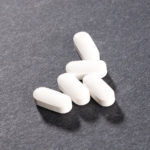By David Blyweiss, M.D., Advanced Natural Wellness
November 9, 2015
- Big Pharma strikes while the iron is hot
- There’s no such thing as “bad cholesterol”
- Here’s the real problem and what you can do about it
Today, everybody thinks they know what LDL is.
I’m sure you’ve heard that it’s the “bad cholesterol.” It’s what gives you heart attacks. You’ll even hear proponents who believe every adult over a certain age should take drugs to lower it.
Well, that’s all a bunch of baloney…just slick marketing tactics created by big drug companies to sell their products.
And now that they’ve roped the majority of U.S. adults into believing the hype, they’re striking while the iron’s hot.
In recent months the FDA approved two more drugs to lower your LDL levels. They’re called PCSK9 inhibitors and go by the names of Repatha and Praluent.
They work by making the liver more efficient at getting rid of LDL. And get this. They sell for over $14,000 a year! More money for Big Pharma, bad news for you.
MD Exposes the Hidden Danger to Your Eyes

When your eyesight starts to fail, it's a real problem. Suddenly you can't go to the grocery store... you can't get to the doctor if you have an emergency... you can't meet your friends for dinner…
Your "regular" doctor doesn't have time to keep up with the latest research. And the same goes for eye doctors. They go to school to learn how to fit you for glasses and contacts, but have no way of preventing the damage and loss of eyesight that threatens your freedom and independence.
Let me show you something that explains a LOT about how your eyes work.
In my FREE Special Report, I'll show you a HUGE, untapped resource for your eyes that safely and naturally restores clear, effortless eyesight.
Click here to get started...
I’m here to tell you – one more time – that LDL is not the heart threat you’ve been lead to believe.
There is no scientific evidence that LDL is harmful. In fact, we’ve seen over and over again that LDL isn’t even a very good predictor of heart disease. About half of the people hospitalized for heart disease have optimal – or lower – LDL levels.
Truth is, the cholesterol in LDL has a very critical job when it comes to your heart health.
It patches up any damage that occurs on the walls of your arteries. Without the cholesterol in LDL particles, injuries to your arteries wouldn’t be able to heal. It basically seals up the damage…sort of like applying spackle to a scratched or dented wall.
In other words, cholesterol is not the cause of heart disease.
So where does the real problem actually start?
With arterial damage that’s caused by inflammation. Even low-grade inflammation can create stiffness in the arteries.
Now, these days there are a lot of causes of chronic inflammation. A big part is today’s lifestyle. I always tell my patients the best thing they can do is increase their physical activity and avoid modern-day foods loaded with trans fats, salts, sugar and other additives.
Instead, it’s much better to eat like a Mediterranean.
The World's Quickest Solution for Ending Prostate and Urinary Misery
This has recently been revealed to be one of the only real breakthroughs in prostate health.
The seeds of a strange fruit (sometimes called "Chinese Apples") hold powerful phytonutrients that are a revolution in prostate health.
In fact, UCLA and Veterans Administration research have now proved this to be true.
Not only that, but it may be the worlds quickest solution for ending prostate misery.
Simply stated, these phytonutrients represent a huge step beyond beta sitosterol, saw palmetto, and other phytosterols alone.
Simply click HERE if you want to have fast prostate relief...restful, uninterrupted sleep...no more constant "urges to go"...enhanced virility...and optimal prostate support for life.
But if you need a little extra help to reduce inflammation and protect your heart, here are three things you can take immediate control over:
LDL particle size. Not all LDL particles are the same. Some of them are large and fluffy. Others are small and dense.
When they’re small and dense, they tend to slip through the lining of your blood vessels where they can do the most damage. They oxidize. Inflammation sets in. Plaque starts accumulating, and blockages begin to develop. Drugs do nothing to give you big fluffy LDL particles.
Extended-release niacin has a specific effect on the smaller, more dangerous LDL particles. Plus, it enhances the role of large HDL particles, which also reduces cardio risk. Start on a low dose and slowly build up to 1,000 mg. in divided doses over the course of the day.
High blood pressure. When your blood pressure is high, the force of the blood creates microscopic tears and scarring in the inner walls of your blood vessels. Once the damage sets in fats, cholesterol and other substances in your bloodstream start building up.
Nitric oxide (NO) can offer a great deal of protection against high blood pressure. It helps relax and expand blood vessels so blood can flow freely throughout your entire circulatory system. This helps prevent plaque build up and arterial damage.
You can boost NO levels by drinking just 250 ml of beetroot juice daily. This amount can lower your blood pressure by about 8/4 mmHg (8 points on the top number, 4 points on the bottom number). It also works to reduce arterial stiffness and thickening of your arteries.
High blood sugar. Elevated blood glucose levels pose numerous problems for your blood vessels. It decreases nitric oxide levels and promotes inflammation of the inner lining of your blood vessels. This, of course, sets the stage for high blood pressure and arterial damage.
Chlorogenic acid helps block the absorption of sugar in your intestines. Plus, it suppresses your liver from producing glucose after a meal. So that takes care of your sugar problems. Better yet, it also improves NO bioavailability and may even reduce blood pressure. That’s a one-two-three punch when it comes to your arterial health.
I also recommend supplementing with anti-inflammatory omega-3 fish oil and heart healthy CoQ10.
Look for a high quality fish oil supplement that contains oil from fresh, wild-caught, deep sea fish. And make sure it’s been molecularly distilled and tested for purity (i.e., no mercury.) Aim for 1200mg. of EPA and 800 mg. of DHA daily to get the added bonus of lengthening your telomeres.
CoQ10 provides the cellular energy your heart, muscles and other organs need to function properly. Look for the most bio-available form available. It’s called “ubiquinol.” Just 100 mg. a day can protect and preserve your heart health.
Sources:
Sachdeva A, et al. Lipid levels in patients hospitalized with coronary artery disease: An analysis of 136,905 hospitalizations in Get With The Guidelines, American Heart Journal. 2009; 157(2): 111-117
Morgan JM, et al. Effects of extended-release niacin on lipoprotein subclass distribution. American Journal of Cardiology. 2003 Jun 15;91(12):1432-6.
Kapil V, et al. Dietary nitrate provides sustained blood pressure lowering in hypertensive patients: a randomized, phase 2, double-blind, placebo-controlled study. Hypertension. 2015 Feb;65(2):320-7.
Kolluru GK, et al. Endothelial Dysfunction and Diabetes: Effects on Angiogenesis, Vascular Remodeling, and Wound Healing. Int J Vasc Med.2012; 2012: 918267.
Griffin BA. The effect of n-3 fatty acids on low density lipoprotein subfractions. Lipids. 2001;36 Suppl:S91-7.
Zhao Y, et al. Antihypertensive effects and mechanisms of chlorogenic acids. Hypertens Res. 2012 Apr;35(4):370-4.






